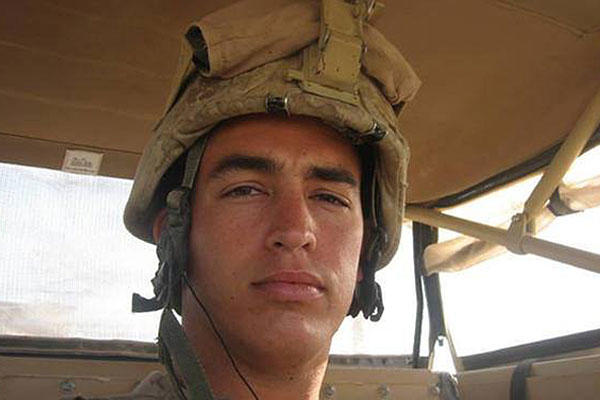After 214 days in a Mexican prison, Sgt. Andrew Tahmooressi crossed the U.S.–Mexican border Friday night, boarding a private jet for Florida shortly after 9 p.m., after a strong diplomatic push convinced a judge to release the former Marine on humanitarian grounds.
His release comes after a lengthy trial and a Congressional hearing in September highly critical of Obama Administration efforts to secure his release and Mexico’s refusal to let him go. Tahmooressi said he made an innocent mistake the evening he crossed into Tijuana with three weapons in his truck on March 31.
While his defense rested its case several weeks ago, Tahmooressi’s release came only after a strong diplomatic push from former Gov. Bill Richardson of New Mexico and Reps. Ed Royce, R-California, and Matt Salmon, R-Arizona.
The three officials, along with Tahmooressi’s mother Jill, have spent the last week in Tijuana pressing officials for his release.
Speaking by phone on his way to board a plane with Tahmooressi, Richardson said the trio, along with talk show host Montel Williams, met with Mexico’s Attorney General and Ambassador to the U.S., advocating for his liberation.
Upon release, Mexican officials processed him quickly through immigration, Richardson said.
“He was happy. He was smiling. He's looking good. His spirits are high,” Richardson told Fox News, adding that Tahmooressi said he wants a steak dinner and stone crabs.
But Richardson also said Tahmooressi is seeking privacy and still needs to receive treatment for his Post-Traumatic Stress Disorder, something that wasn’t available in Mexican prison-- a key argument put forth by defense attorney Fernando Benitez.
Benitez said that Tahmooressi was continuing to deteriorate and Mexico didn’t have the expertise or facilities to treat his PTSD, which he suffered after two tours in Afghanistan.
The defense attorney also alleged that customs agents held Tahmooerssi illegally, denying him access to a translator, lawyer and consular access.
But after the seven-month ordeal, it was the PTSD argument that ultimately pressured the judge to acquit Tahmooressi.
“The judicial process of Mexico made the right choice,” Richardson said. “The humanitarian release was justified based on PTSD, something that the Mexican judicial and medical system is not as conscious of as the United States.”
While his release was granted by the trial judge, Richardson acknowledged it likely would not have happened without political pressure.
“The totality of diplomacy, the judicial process, the legal strategy and the importance of the American-Mexican relationship resulted in Andrew's release,” Richardson said. "And now we have this great outcome. Andrew's coming home."





























